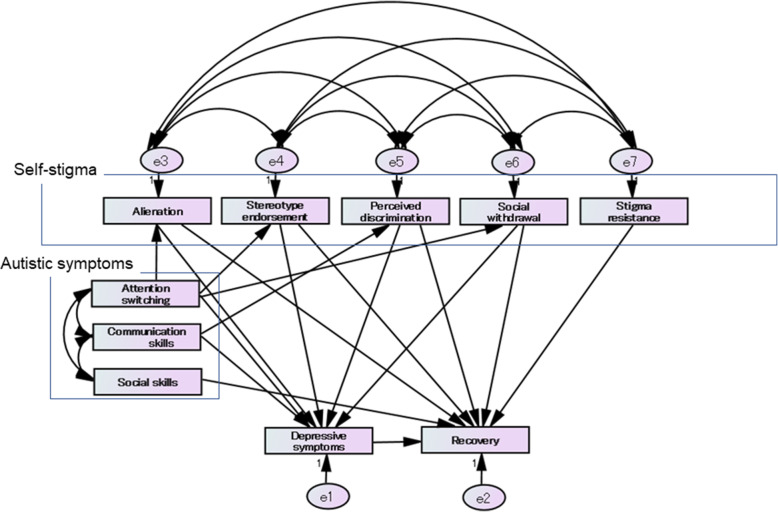Fig. 1.
A hypothetical initial model showing the relationship between self-stigma, autistic and depressive symptoms, and recovery. The hypothetical initial models that are shown here assume that “attention switching,” a symptom of autism, affects “alienation,” “stereotype endorsement,” and “social withdrawal” of self-stigma, and depressive symptoms. “Communication skills,” a symptom of autism, is hypothesized to influence “perceived discrimination” and depressive symptoms. Further, in the initial model, we hypothesized that “social skills,” a symptom of autism, affects recovery in one way. Based on several previous studies and bivariate correlation analysis, we assumed that all subscales of self-stigma affect recovery and four subscales of self-stigma, except for “stigma resistance” influence depressive symptoms. The initial hypothetical model provided the following statistics for the model fit: chi-square statistic = 21.737, df = 16, p = 0.152; GFI = 0.962; AGFI = 0.868; CFI = 0.990; AIC = 99.737; and RMSEA = 0.059. Paths with p-values > 0.05 were removed from the initial models, and the model goodness-of-fit was reanalyzed

